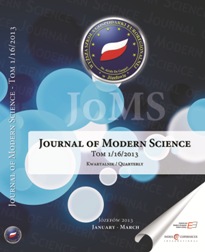The surrogate motherhood: law, morals, and policy.
The surrogate motherhood: law, morals, and policy.
Author(s): Alexey AnisimovSubject(s): Human Rights and Humanitarian Law, Ethics / Practical Philosophy, Health and medicine and law
Published by: Wydawnictwo Wyższej Szkoły Gospodarki Euroregionalnej im. Alcide De Gasperi w Józefowie
Keywords: surrogate motherhood; reproductive technologies; contract; infertility; child; human rights; medicine; policy;
Summary/Abstract: The surrogate motherhood implies bearing and delivering of a child (premature delivery included) under the contract concluded between a surrogate mother (a woman bearing a child after a donor embryo transfer) and potential parents, whose germ cells were used for the fertilization, or a single woman, who cannot bear and deliver a child for medical grounds. The article focuses on the number of legal, political, moral, and ethical problems arising when implementing surrogate motherhood. The author analyzes laws of various countries in the world as well as the court practice. The author distinguishes the following legal problems in this sphere: ensuring rights of a married infertile couple that concluded a contract with a surrogate mother; ensuring rights of children born by a surrogate mother; and the necessity to clarify the content of a contract with a surrogate mother. Within the study of the moral and ethical aspect of surrogate motherhood two issues are under consideration – secular and religious. In the first sense, representatives of medicine considering the problem of surrogate motherhood from a pragmatic point of view adhere to the up-to-date reproductive technologies and support them. Lawyers also don’t see here any particular ethical problems. They suppose that the right to physical and mental integrity involves a legal power of a citizen to independently use and dispose of his own body and freely commit acts in accordance with his consciousness and will. The position of religious communities on this problem is controversial. Islamic theologists admit the application of this method provided that it is the only way to bear a child. The Russian Orthodox Church has a very negative attitude toward the idea of surrogate motherhood. Its representatives sometimes compare surrogate motherhood with prostitution. They claim that if the God did not give children to a married couple, it is inadmissible to correct it with medical remedies (by means of reproductive technologies). In conclusion the attention is drawn to the necessity of political solution of this problem by developing and providing government financing for a special program to support those women, who got into a tight real life situation. It is expected that the solution of this range of existing problems will diminish the acuteness of public discussions.
Journal: Journal of Modern Science
- Issue Year: 18/2013
- Issue No: 3
- Page Range: 105-116
- Page Count: 12
- Language: English

